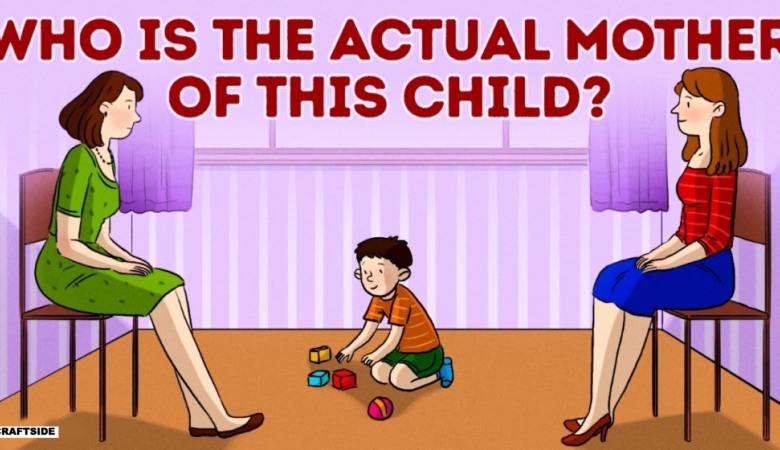When discussing love, we often imagine passion, tenderness, and deep emotional connection. But what happens when the subject of love is a psychopath? The topic of psychopathy in relationships is both controversial and fascinating, blending the allure of romance with the harsh realities of manipulation and emotional detachment. In this article, we delve into the intricate world of psychopaths in love—exploring whether they can truly experience affection, the unique reasons behind their relationships, and the dark strategies they use to manipulate partners.
We’ll uncover the science behind psychopathy and love. For further reading and credibility, we reference trusted sources such as Psychology Today and Verywell Mind.
Psychopaths and Love: Are They Capable of Genuine Affection?

It’s a common question: can psychopaths truly love another person? Research in the field of psychology suggests that while individuals with psychopathic traits can experience emotions, the nature of their affection is fundamentally different from that of non-psychopathic individuals.
- Limited Empathy: Psychopaths are characterized by a reduced capacity for empathy. This means that while they might feel an attachment or desire for closeness, their ability to genuinely understand and share the emotional experiences of their partner is impaired.
- Conditional Affection: Their feelings of affection are often tied to personal gains rather than a selfless, enduring love. In essence, the love they offer may be more transactional—focused on what they can receive rather than what they can give.
- Surface-Level Emotions: Studies indicate that while psychopaths can mimic emotions to blend into social environments, their emotional experiences tend to be superficial, making it difficult to sustain a deep, meaningful connection.
For a deeper dive into the emotional world of psychopaths, consider exploring articles on Psychology Today’s website.
Unconventional Relationship Foundations: Different Motives and Dynamics

Unlike traditional relationships that are built on mutual trust, empathy, and emotional intimacy, relationships involving psychopaths are often founded on entirely different motives.
- Power and Control: Many psychopaths are drawn to relationships that allow them to exert dominance. The drive for power and control can lead them to structure their relationships in a way that benefits their own needs and desires.
- Personal Gain: Whether it’s financial, social, or emotional leverage, psychopaths may pursue relationships with the primary goal of enhancing their personal status or achieving specific benefits.
- Superficial Charm: Often described as charming and charismatic, psychopaths use these traits to attract potential partners. However, behind the charm lies a calculated approach aimed at exploiting the partner’s vulnerabilities.
This unconventional foundation means that while the relationship may initially appear exciting and engaging, it lacks the mutual respect and emotional depth that characterizes healthy, long-term partnerships. For more insight into the dynamics of manipulative relationships, visit Verywell Mind.
The Craving for Connection: Why Psychopaths Struggle to Form Close Relationships

Despite their reputation for manipulation, psychopaths may actually crave human connection. However, their ability to form genuine, lasting relationships is severely compromised.
- Fear of Vulnerability: Psychopaths often avoid genuine emotional closeness because vulnerability contradicts their need for control. They may desire connection but are unwilling to open up in ways that could compromise their authority.
- Lack of Deep Attachment: Their relationships are typically marked by shallow emotional bonds. While they may engage in intimate behaviors, the underlying connection is often fragile and transient.
- Interpersonal Challenges: The inability to read or respond to subtle emotional cues can make it challenging for psychopaths to navigate the complexities of intimate relationships. This often results in a cycle where the desire for closeness is undermined by their own actions.
Understanding these challenges can help partners recognize that the struggle for genuine connection is a core issue in relationships with individuals who display psychopathic traits. For additional expert perspectives, check out Psychology Today’s research on attachment and psychopathy.
Emotional Unavailability: The Inability to Provide Genuine Support

One of the most challenging aspects of relationships with psychopaths is their emotional unavailability. Their inability to provide meaningful emotional support often leaves partners feeling isolated and unsupported.
- Lack of Empathetic Response: In a healthy relationship, partners offer support during times of stress or emotional distress. However, psychopaths, due to their impaired empathy, are often incapable of providing this level of care.
- Self-Centered Interactions: Their focus on their own needs can result in one-sided relationships where the partner’s emotional well-being is neglected. This lack of reciprocity can lead to significant emotional strain.
- Emotional Manipulation: Instead of offering genuine support, psychopaths may use emotional manipulation to create a false sense of closeness. This can involve gaslighting, where they distort reality to undermine the partner’s confidence and maintain control.
For more on how emotional unavailability affects relationships, explore articles on Healthline.
Short-Term Tactics: Why Psychopaths Prefer Brief, Superficial Relationships

Psychopaths often favor short-term relationships over long-term commitments. This preference stems from their desire to maintain control and avoid the vulnerabilities that come with deeper emotional ties.
- Avoidance of Commitment: Long-term relationships require a level of commitment and emotional investment that psychopaths typically avoid. Their fear of vulnerability drives them to seek relationships that can be easily discarded.
- Cycle of Idealization and Devaluation: Many psychopaths engage in a pattern of initially idealizing their partner only to quickly devalue them once the relationship has served its purpose. This cycle reinforces their preference for fleeting connections.
- Maximizing Personal Gain: Short-term relationships allow psychopaths to extract benefits quickly without the need to invest in a sustained emotional bond. Once they have achieved their desired outcome, they move on to the next target.
This approach not only harms their partners but also perpetuates a cycle of emotional instability. For a detailed discussion on the dynamics of short-term relationships and manipulation, see Verywell Mind’s relationship insights.
Master Manipulators: How Psychopaths Use Deception in Love

A defining characteristic of psychopaths is their remarkable ability to manipulate those around them. When it comes to love and relationships, this manipulation can be both subtle and overt, leaving partners confused and disempowered.
- Charm and Deceit: Psychopaths are often adept at using charm to mask their true intentions. They may present themselves as ideal partners while secretly orchestrating scenarios that maintain their control.
- Gaslighting Techniques: One common manipulative tactic is gaslighting, where the psychopath undermines their partner’s perception of reality. This tactic not only destabilizes the partner’s self-confidence but also deepens the power imbalance in the relationship.
- Emotional Exploitation: By exploiting the vulnerabilities and insecurities of their partners, psychopaths can secure the emotional dependence of those they manipulate. This creates a toxic dynamic where the partner’s emotional needs are exploited for the psychopath’s benefit.
Understanding these manipulative techniques is crucial for anyone navigating a relationship with a potentially psychopathic partner. For additional reading on manipulation in relationships, visit Psychology Today’s manipulation articles.
The Impact on Partners: Recognizing the Warning Signs
Being in a relationship with a psychopath can have profound emotional and psychological consequences for their partners. Recognizing the signs early can be essential for protecting your well-being.
- Emotional Exhaustion: Constant manipulation and a lack of genuine emotional support can leave partners feeling drained and isolated.
- Loss of Self-Identity: Over time, the emotional manipulation employed by psychopaths can erode a partner’s sense of self, leading to confusion and diminished self-worth.
- Chronic Stress and Anxiety: The unstable nature of these relationships often results in chronic stress and anxiety, which can have long-term health implications.
If you suspect that you or someone you know is involved with a manipulative or emotionally abusive partner, consider seeking support from mental health professionals or trusted organizations. Resources such as National Domestic Violence Hotline and Psychology Today’s therapist directory can provide assistance.
Understanding the Science: What Research Reveals About Psychopathy and Love
The study of psychopathy in the context of relationships is a complex field that continues to evolve. Research indicates that while psychopaths may mimic emotional behaviors, their underlying motivations and capacity for genuine love are fundamentally different from those of non-psychopathic individuals.
- Neurological Differences: Brain imaging studies have revealed that individuals with psychopathic traits often exhibit differences in areas related to emotional processing and empathy. These differences help explain why their emotional responses are often superficial.
- Behavioral Patterns: Longitudinal studies have shown that relationships involving psychopaths tend to follow predictable patterns of idealization, manipulation, and eventual devaluation, reinforcing the notion that their love is conditional and self-serving.
- Impact on Relationship Outcomes: Research consistently highlights that partners of psychopaths are more likely to experience adverse psychological outcomes, including depression, anxiety, and diminished self-esteem.
For those interested in exploring the scientific literature on this subject, scholarly articles available on PubMed offer detailed insights into the neurobiological and behavioral aspects of psychopathy.
Conclusion: Navigating the Complex World of Psychopathic Love
The subject of what happens when psychopaths fall in love is as complex as it is controversial. While psychopaths may be capable of forming attachments and even exhibiting behaviors that resemble love, the nature of their relationships is often marked by manipulation, emotional unavailability, and short-lived commitments.
For partners caught in such relationships, understanding these dynamics is crucial for protecting their own emotional health and making informed decisions about their future. It is important to recognize that the love a psychopath offers is typically intertwined with a need for control and personal gain rather than genuine, reciprocal emotional support.
By raising awareness of these issues and sharing expert insights, we hope to empower readers to identify warning signs and seek help when necessary. Whether you are researching relationship dynamics for academic purposes or trying to navigate a challenging personal situation, being informed is the first step toward a healthier, more balanced life.
For further reading and expert advice, consider visiting reputable sources such as Verywell Mind and Psychology Today, which offer extensive resources on psychopathy, manipulation, and healthy relationships.
Disclaimer: The content in this article is intended for informational purposes only and should not be taken as professional psychological or medical advice. If you are experiencing emotional distress or suspect you are in an unhealthy relationship, please consult a mental health professional.
Preview photo credit The Girl on the Train / DreamWorks









Leave a Reply